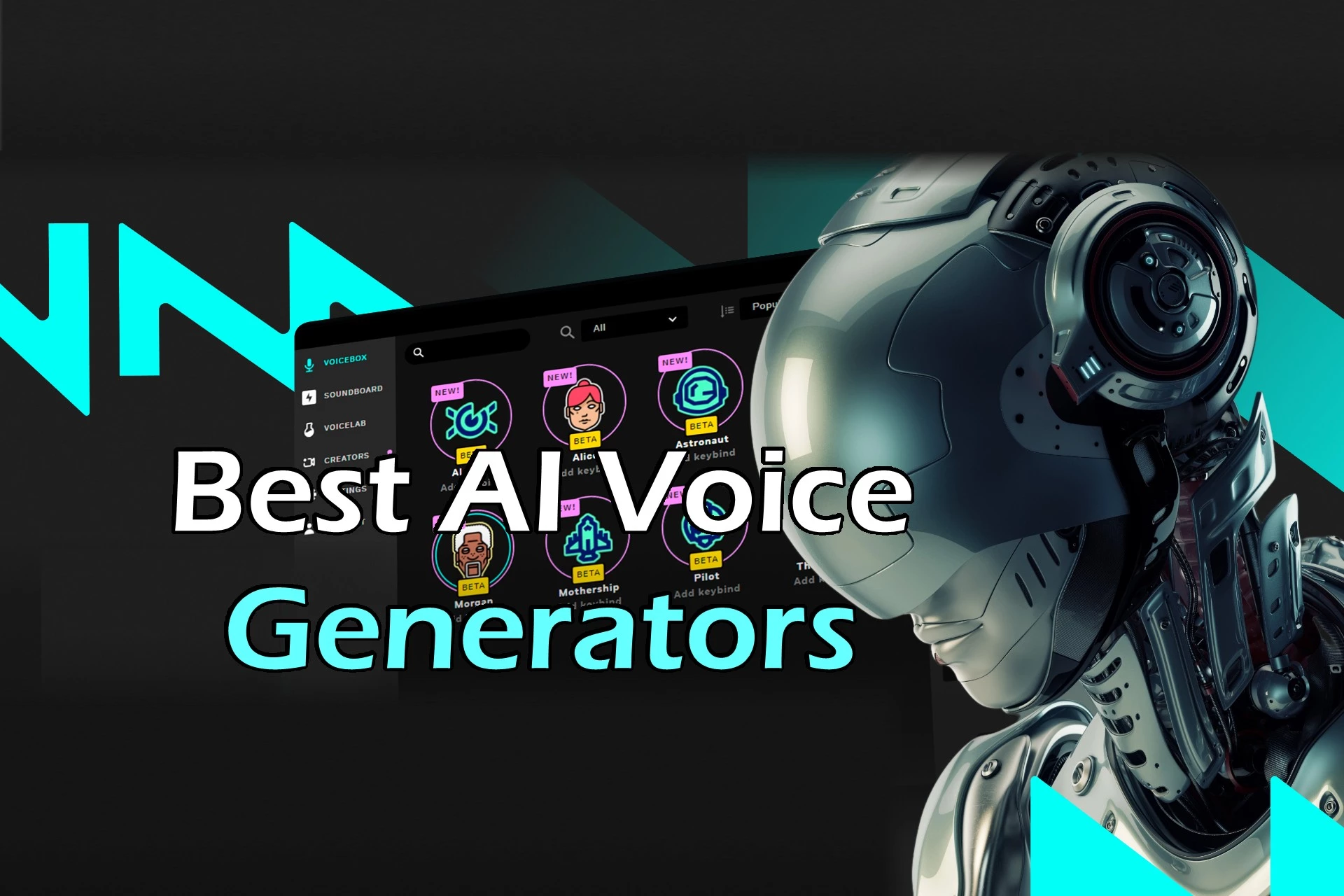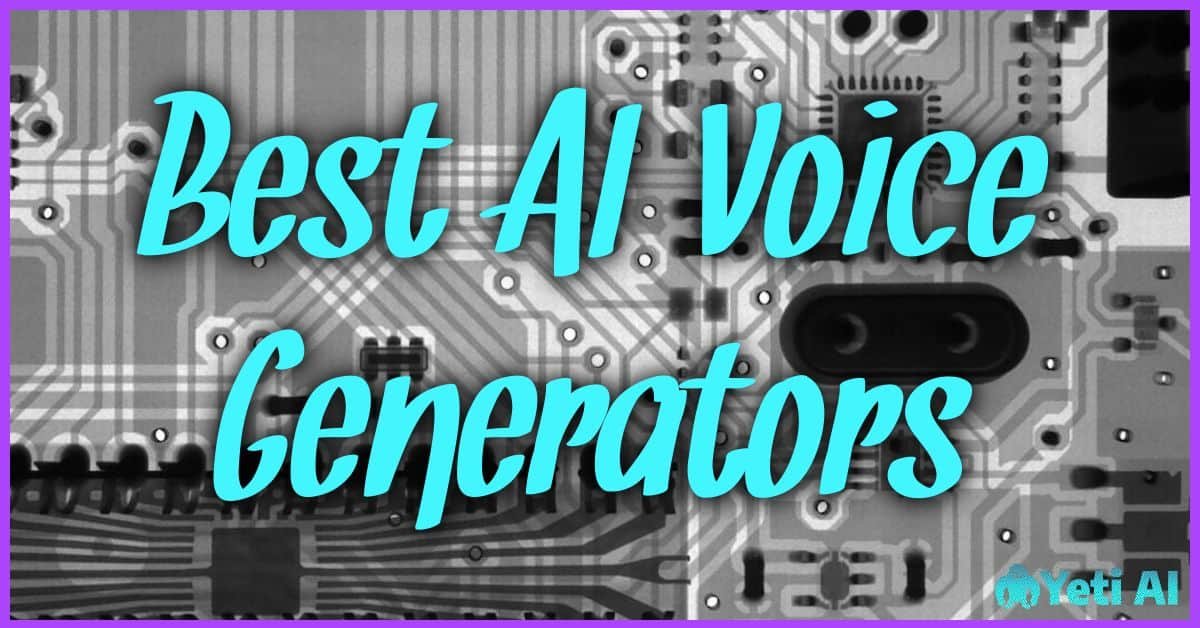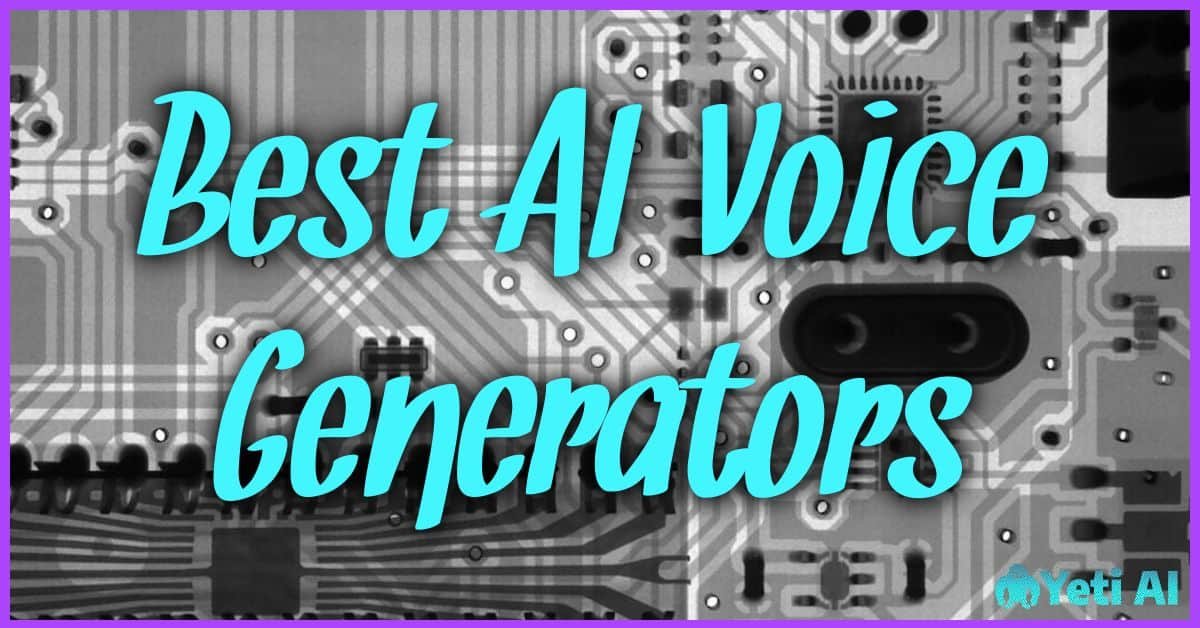Finding the right AI voice generator for podcasting is crucial for creating a professional and engaging listening experience. This guide helps you navigate the world of AI voices, exploring factors like voice quality, style, integration with your workflow, and potential challenges. We’ll compare popular options, offering practical advice to ensure your podcast sounds its best.
From selecting a voice that matches your podcast’s genre to seamlessly integrating the AI-generated audio into your editing process, we’ll cover everything you need to know. We’ll also discuss strategies for managing large amounts of text, optimizing audio quality for different platforms, and addressing potential copyright concerns.
Choosing the Right AI Voice Generator for Your Podcast

Launching a podcast can be exciting, but finding the right voice can be a challenge. Using an AI voice generator offers a flexible and cost-effective solution, but navigating the options can feel overwhelming. This guide will walk you through the key factors to consider when selecting an AI voice generator perfectly suited for your podcasting needs.
Factors to Consider When Choosing an AI Voice Generator, Finding the right AI voice generator for podcasting

Selecting the right AI voice generator involves more than just picking the cheapest option. Several critical factors directly impact the quality and success of your podcast. Let’s explore them.
Picking the perfect AI voice for your podcast is key; you want something engaging and professional. While you’re figuring that out, it’s worth noting that unrelated news, like this report on Federal courts won’t refer Clarence Thomas for DOJ investigation , highlights how important clear communication is, even outside the podcasting world. So, back to your AI voice – consider factors like tone and naturalness to create a truly captivating listening experience.
- Voice Quality for Podcasting: High-quality audio is paramount. A grainy, robotic voice will quickly turn listeners away. Look for generators offering natural-sounding voices with clear articulation and minimal artifacts.
- Voice Styles and Podcast Genres: Different voices suit different podcast genres. A friendly, conversational voice works well for interviews and casual discussions, while a more authoritative voice might be better for educational podcasts. Consider your target audience and podcast format when choosing a voice style.
- Text-to-Speech (TTS) Engine Comparison: TTS engines vary significantly in naturalness and expressiveness. Some sound robotic, while others convincingly mimic human speech. Consider testing several engines before committing to one.
- Pronunciation Accuracy and Accent Handling: Accurate pronunciation is crucial, especially if your podcast involves names, technical terms, or diverse accents. Check how well the generator handles various pronunciations and accents.
- Emotional Range and Intonation: A monotone voice is boring. A good AI voice generator should offer a range of emotions and intonations to keep listeners engaged. Look for options that allow for adjustments to pitch, pace, and emphasis.
| AI Voice Generator | Pricing | Features | Ease of Use |
|---|---|---|---|
| Murf.ai | Subscription-based, various plans | Wide range of voices, styles, and integrations | User-friendly interface |
| NaturalReader | Free and paid plans | Multiple voices, text-to-speech, and audio editing tools | Relatively easy to use |
| Descript | Subscription-based | Advanced features including transcription, editing, and collaboration | Steeper learning curve |
Integration with Podcasting Workflows
Seamlessly integrating your AI voice generator into your existing podcast workflow is key to efficient production. Here’s how to achieve this.
- Integrating AI Voice Generation into Podcast Production: Most AI voice generators offer simple integration via APIs or user-friendly interfaces. The process typically involves uploading your script, selecting a voice, and generating the audio.
- Managing Large Amounts of Text: For longer podcasts, break down your script into manageable chunks to avoid overwhelming the generator. Batch processing features can help streamline this process.
- Editing and Refining AI-Generated Audio: While AI voices are improving, some editing might be necessary. Standard audio editing software can be used to adjust levels, remove artifacts, and fine-tune the audio.
- Blending AI-Generated Voice with Other Audio: AI voices can be seamlessly blended with music, sound effects, and other audio elements using audio editing software. This adds richness and professionalism to your podcast.
- Optimizing Audio Quality for Different Platforms: Different podcast platforms have varying audio requirements. Ensure your audio is properly mastered and optimized for each platform to guarantee a consistent listening experience.
Workflow Diagram: Imagine a diagram showing a flowchart. It would begin with “Script Writing,” proceed to “AI Voice Generation,” then “Audio Editing,” followed by “Mixing and Mastering,” and finally, “Podcast Publication.”
Picking the perfect AI voice for your podcast can be tricky! You want something natural-sounding and engaging, right? To really level up your audio editing skills (and maybe even your whole career!), check out some great resources like best online IT courses for career advancement to boost your tech know-how. Mastering audio editing software often goes hand-in-hand with finding that perfect AI voice, so you can create a truly professional-sounding podcast.
Evaluating and Selecting a Suitable Service
Choosing the right AI voice generator requires careful evaluation. Consider these factors to make an informed decision.
- Key Features to Look For: Prioritize features such as natural-sounding voices, a wide range of styles, good pronunciation accuracy, easy integration with your workflow, and robust editing tools.
- Cloud-Based vs. Offline AI Voice Generators: Cloud-based generators offer accessibility and scalability, while offline generators provide greater privacy and control but might require more processing power.
- Testing and Evaluating AI Voices: Test several voices with sample text representative of your podcast content. Listen carefully for naturalness, clarity, and emotional range.
- Selection Criteria: Prioritize factors such as cost, voice quality, ease of use, features, and platform compatibility.
- Assessing Naturalness and Clarity: Pay close attention to the voice’s intonation, pacing, and pronunciation. A natural-sounding voice will feel more engaging and less robotic.
Addressing Potential Challenges and Limitations
While AI voice generation technology is rapidly advancing, it still has limitations. Being aware of these limitations helps manage expectations and find solutions.
- Limitations of Current AI Voice Generation Technology: Current AI voices may struggle with complex sentence structures, nuanced emotions, and subtle variations in tone.
- Handling Unnatural Pauses or Intonation Inconsistencies: Use audio editing software to address these issues. Sometimes, slight adjustments to the script can also help.
- Mitigating Robotic or Monotonous Voices: Select voices with natural intonation and emotional range. Consider using multiple voices or adding background music to break up monotony.
- Copyright Concerns: Be aware of the licensing terms associated with the AI voices you use. Some services may require attribution or payment for commercial use.
- Maintaining Podcast Authenticity: Use AI voices strategically. Don’t let them overshadow the core content or your unique podcasting style. Balance AI-generated voices with human elements where appropriate.
Ending Remarks: Finding The Right AI Voice Generator For Podcasting

Choosing the perfect AI voice generator for your podcast is a journey, not a destination. By carefully considering voice quality, workflow integration, and potential limitations, you can leverage this technology to elevate your podcast’s production value and reach a wider audience. Remember to test different options and prioritize a natural-sounding voice that complements your content and brand. Happy podcasting!
Question & Answer Hub
What’s the difference between cloud-based and offline AI voice generators?
Cloud-based generators offer more voices and features but require an internet connection. Offline generators work without internet access but may have fewer options.
How do I handle unnatural pauses or inconsistencies in AI-generated speech?
Picking the perfect AI voice for your podcast can feel overwhelming! To help you out, check out this awesome resource on comparing different AI voice generator software options to see which features and voices best suit your style. Once you’ve compared a few, you’ll be well on your way to finding that ideal AI voice for your podcast and creating engaging content.
Careful text preparation is key. Use punctuation and formatting to guide the AI. You can also edit the audio directly to smooth out any issues.
Are there any copyright concerns when using AI-generated voices?
Copyright depends on the terms of service of your chosen AI voice generator. Some offer royalty-free voices, while others may require licensing.
How can I make sure my AI voice sounds natural and engaging?
Choose a voice with a natural intonation and rhythm. Experiment with different voices and settings to find the best fit for your podcast’s style.
